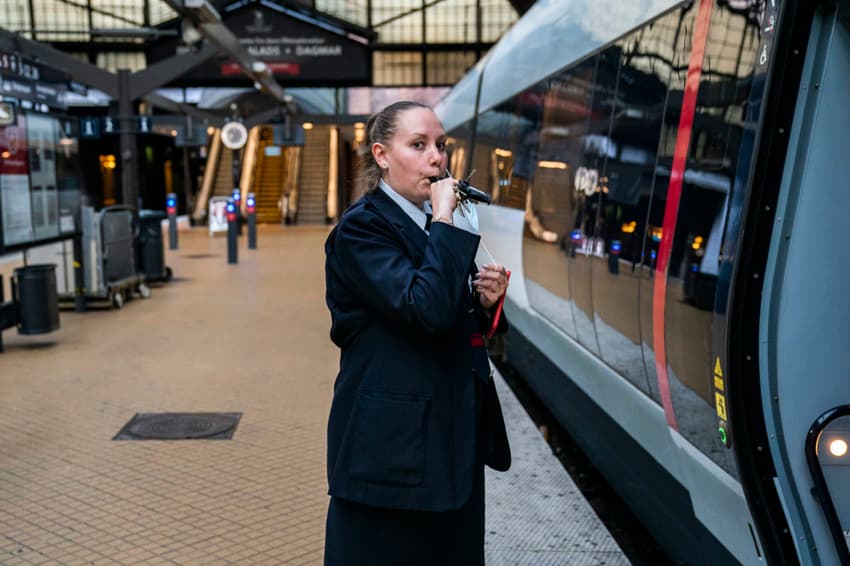Danish rail staff report high incidence of abuse at work

Staff on board Denmark’s trains are subjected to both physical and verbal abuse when at work, rail employees said in a survey.
In the survey, conducted by the trade union for rail workers Dansk Jernbaneforbund, one in five rail staff said they had received physical abuse at work at some point during the last three months.
Almost 80 percent meanwhile said they had received verbal abuse during the last three months.
Some 415 rail workers took part in the survey.
The abuse is most likely to occur when staff check the validity of passengers’ tickets.
The chairman of the trade union, Preben S. Pedersen, said that the number of staff facing aggressive working environments was too high.
“These numbers tell us a grim story about what our colleagues experience every day out on the trains. And too many people experience an excessively harsh working environment, where violence occurs frequently,” he said in press statement.
“We must and should not accept that situation,” he said.
Staff must not be alone on trains, he stressed.
“We must make sure that staff are never working alone on routes where this occurs most frequently,” he said.
“Secondly, we must train front line staff even better to handle conflicts so they have the best and newest remedies in their tool box,” he said.
A majority of train staff also said that the atmosphere on board trains has become worse since the Covid-19 pandemic.
“There are groups which react very negatively to authorities and who think it is okay to abuse our staff verbally. Staff in other sectors have also reported this trend,” Pedersen said.
“I think we need to speak out against this trend if it is to be turned around,” he said.
Comments
See Also
In the survey, conducted by the trade union for rail workers Dansk Jernbaneforbund, one in five rail staff said they had received physical abuse at work at some point during the last three months.
Almost 80 percent meanwhile said they had received verbal abuse during the last three months.
Some 415 rail workers took part in the survey.
The abuse is most likely to occur when staff check the validity of passengers’ tickets.
The chairman of the trade union, Preben S. Pedersen, said that the number of staff facing aggressive working environments was too high.
“These numbers tell us a grim story about what our colleagues experience every day out on the trains. And too many people experience an excessively harsh working environment, where violence occurs frequently,” he said in press statement.
“We must and should not accept that situation,” he said.
Staff must not be alone on trains, he stressed.
“We must make sure that staff are never working alone on routes where this occurs most frequently,” he said.
“Secondly, we must train front line staff even better to handle conflicts so they have the best and newest remedies in their tool box,” he said.
A majority of train staff also said that the atmosphere on board trains has become worse since the Covid-19 pandemic.
“There are groups which react very negatively to authorities and who think it is okay to abuse our staff verbally. Staff in other sectors have also reported this trend,” Pedersen said.
“I think we need to speak out against this trend if it is to be turned around,” he said.
Join the conversation in our comments section below. Share your own views and experience and if you have a question or suggestion for our journalists then email us at [email protected].
Please keep comments civil, constructive and on topic – and make sure to read our terms of use before getting involved.
Please log in here to leave a comment.